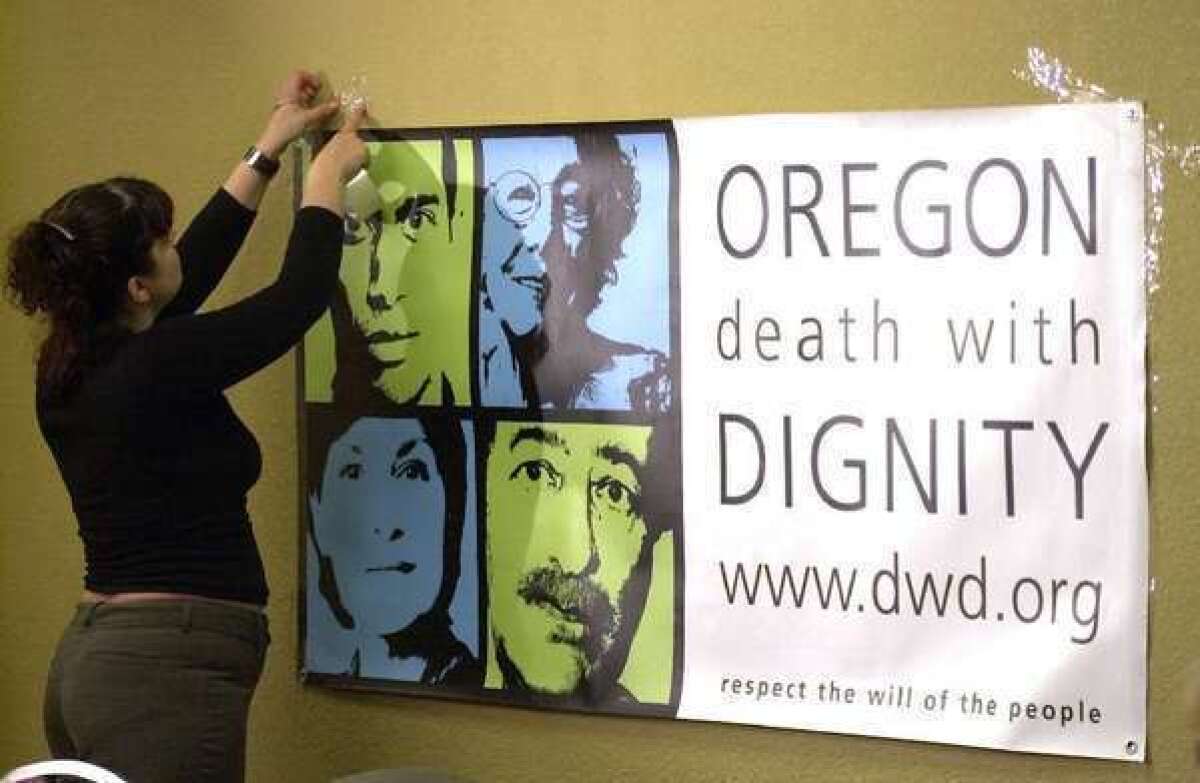Belgian case might mark where the right to die ends

- Share via
Perhaps the only thing more surprising than the news that Belgium allowed the euthanasia of twin brothers who were deaf and going blind is how many commenters appear to favor this event and wish for similar laws in the United States.
USA Today and various other sources report that the 45-year-old brothers had been close companions all their lives and lived in the same house. According to a family member, they were distraught at the idea that blindness would rob them of their independence, did not want to live in any kind of assisted-living facility and were horrified by the thought that they would never see each other again -- which would also make communication difficult, at least at first.
Belgian law allows for the right to die when the patient is “suffering.”
I’m an avid supporter of right-to-die laws for terminally ill patients who endure terrible suffering. I’m a shocked observer of the agreement of a government and doctor that these brothers’ plight, as sad as it was, represented the sort of suffering that called for that right to be exercised.
I might be in the minority. In online comments, many people supported, or at least semi-supported, the decision. At least the overriding sentiment appeared not to be anger that these deaths had occurred but rather concern that the United States hasn’t taken greater steps toward some sort of compassionate-death law.
The latter is a public sentiment that lawmakers should be heeding. But it seems as though the great failing in the Belgian case was the willingness to accept the brothers’ assertion that death was the only way they could avoid extreme suffering. It’s right for society to provide an out for people for whom there is no reasonable hope of any sizable length or quality of life ahead. But it’s also right for society to help provide people with the means to hope -- such as someone who could have taught these brothers hand communication skills, trained them in how to navigate their home and the related chores without their sight, and hired an aide to assist them with the chores they couldn’t manage.
Or even to say: “Try it. It sounds terrible now, but you might find yourselves more able to adjust than you think. Let’s talk about this a year or two after you both have lost your vision and see if you feel the same way.”
The shame of it is that cases like this will end up being deterrents to the worthwhile right-to-die laws that so many Americans obviously seek.
ALSO:
Putting a price tag on safe food
More to Read
A cure for the common opinion
Get thought-provoking perspectives with our weekly newsletter.
You may occasionally receive promotional content from the Los Angeles Times.







